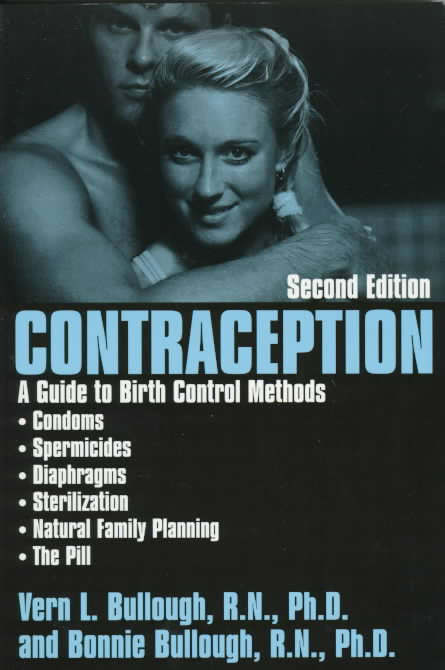
Meaning of CONTRACEPTION
| Pronunciation: | | `kântru'sepshun
|
 WordNet Dictionary WordNet Dictionary |
| |
| | Definition: | | [n] birth control by the use of devices (diaphragm or intrauterine device or condom) or drugs or surgery |
| |
| | Websites: | |
|
| |
| | Synonyms: | | contraceptive method |
| |
| | See Also: | | birth control, birth prevention, birthcontrol, family planning, oral contraception, surgical contraception | |
 Products Dictionary Products Dictionary |
| |
| | Definition: | |  Contraception
Beginning with a delightful and, at times, humorous, historical overview of birth control practices and essential aspects of human reproductive anatomy, two internationally respected sexologists present clear, factual information on all available birth control options and explore the very latest research and testing on contraceptive techniques being developed. Illustrated. more details ... |
| |
| | Websites: | |
|
| |
 Medical Dictionary Medical Dictionary |
| |
| | Definition: | | Birth control; deliberate prevention of the conception of offspring by any of various means. |
| |
| | Websites: | |
|
| |
 Biology Dictionary Biology Dictionary |
| |
| | Definition: | | In general, birth control or contraception is anything that prevents a woman from becoming pregnant. The most basic and cheapest form of contraception is abstinence (not engaging in sexual intercourse at all). However, abstaining from sex can cause great stress and frustration in some, since the human sex drive can be quite powerful. A variation on abstinence is fertility awareness (also known as "natural family planning"). This method involves a couple avoiding intercourse during the times that the woman is most likely to be fertile. This method requires that the woman be very aware of her own body and her reproductive cycle; some estimate that this method has a 70%-98% rate of success, depending on the regularity of the woman's cycle and the specific monitoring technique used. Signs that a woman has ovulated (and is therefore fertile) include a sudden change in basal body temperature, changes in vaginal mucus, or a combination of the two. A woman is least likely to be fertile during her menstrual period and for a few days thereafter. Barrier methods of birth control work by preventing sperm from reaching the egg. Barrier methods work best in conjunction with spermicides (creams or jellies that contain chemicals that kill sperm and sometimes disease-causing microorganisms). Because barrier methods also prevent the exchange of body fluids to varying degrees, they are also useful in preventing the transmission of venereal diseases. Barrier methods include: |
| |
| | Websites: | |
|
| |
 Thesaurus Terms Thesaurus Terms |
| |
| | Related Terms: | | aridity, barrenness, dearth, dry womb, dryness, famine, impotence, ineffectualness, infecundity, infertility, planned parenthood, sterileness, sterility, unfertileness, unfruitfulness, unproductiveness, withered loins |
| |
|
|
|